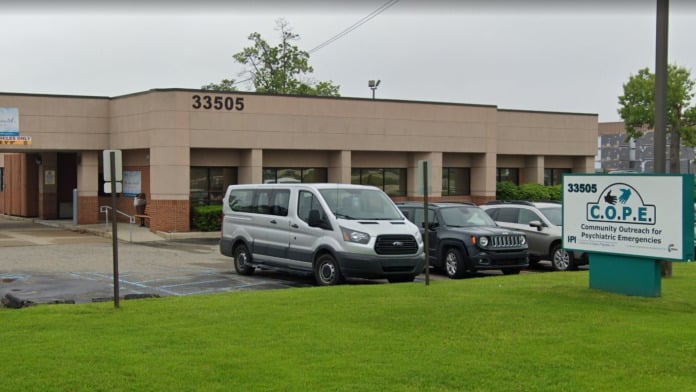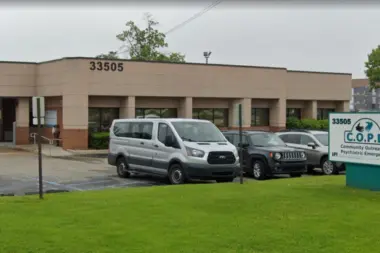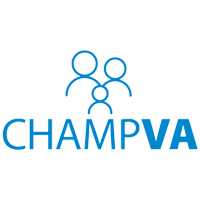About Community Outreach for Psychiatric Emergencies
Hegira Health Community Outreach for Psychiatric Emergencies is a mental and behavioral health center in Livonia, Michigan. The organization specializes in helping people in their darkest hours, including those experiencing suicidal thoughts or behaviors or psychiatric breaks. The center, which has served the community for over 40 years, is Joint Commission accredited which indicates a sterling standard of care.
Meeting Patients Where They Are
Community Outreach for Psychiatric Emergencies has a brick and mortar location on Schoolcraft Road where patients can walk in any time, 24 hours a day, for same day evaluations. They also have a mobile crisis team available around the clock to meet patients where they are, whether that’s a hospital emergency room, drug rehab center, group home or health clinic.
Comprehensive Care in a Crisis
This facility provides a broad array of support services for patients to ensure they have all the tools necessary to recover and move forward. Upon the first meeting, patients meet with a master’s level clinician and a peer support specialist who see to their immediate needs. Then, based on a patient’s goals, staff create personalized care plans which may include addiction treatment and other forms of mental and physical health care.
Besides crisis stabilization and evaluations, the center offers patients necessities such as food, showers, emergency clothing, transportation, and help refilling prescriptions. They also help connect patients with other providers in the community to attend to additional needs. For instance, if a patient needs alcohol or drug rehab, the team can help them get established at a local clinic.
Latest Reviews
Rehab Score
Gallery


Accepted Insurance

Other Forms of Payment
Medicaid is a state based program that helps lower-income individuals and families pay for healthcare. Medicaid covers addiction treatment so those enrolled can use their coverage to pay for rehab. When a program accepts Medicaid the client often pays very little or nothing out of their own pocket.
Private insurance refers to any kind of healthcare coverage that isn't from the state or federal government. This includes individual and family plans offered by an employer or purchased from the Insurance Marketplace. Every plan will have different requirements and out of pocket costs so be sure to get the full details before you start treatment.
Self-pay involves paying for treatment out of your own pocket. You can use savings or credit, get a personal loan, or receive help from family and friends to fund your treatment. If you don't have insurance or your insurance plan doesn't cover a specific program, self-pay can help ensure you still get the care you need.
Financial aid can take many forms. Centers may have grants or scholarships available to clients who meet eligibility requirements. Programs that receive SAMHSA grants may have financial aid available for those who need treatment as well. Grants and scholarships can help you pai for treatment without having to repay.
Medicare is a federal program that provides health insurance for those 65 and older. It also serves people under 65 with chronic and disabling health challenges. To use Medicare for addiction treatment you need to find a program that accepts Medicare and is in network with your plan. Out of pocket costs and preauthorization requirements vary, so always check with your provider.
Addiction Treatments
Levels of Care
Hegira's Mental Health and Substance Abuse Outpatient Treatment Programs offer a variety of services designed to meet the unique needs of each child, adult or family. Services include assessment and evaluation, referral to external resources, crisis resolution, short-term traditional treatment, and long-term management of chronic conditions.
24-hour clinical care in Michigan is essential for certain phases of recovery treatment. During detox, many physical ailments related to the detox process can be lethal if not treated. Having medical staff available at all times provides the proper care for safe detox. Medications and other treatment can also make the process much more comfortable and bearable.
Treatments
Many of those suffering from addiction also suffer from mental or emotional illnesses like schizophrenia, bipolar disorder, depression, or anxiety disorders. Rehab and other substance abuse facilities treating those with a dual diagnosis or co-occurring disorder administer psychiatric treatment to address the person's mental health issue in addition to drug and alcohol rehabilitation.
Mental health rehabs focus on helping individuals recover from mental illnesses like bipolar disorder, clinical depression, anxiety disorders, schizophrenia, and more. Mental health professionals at these facilities are trained to understand and treat mental health issues, both in individual and group settings.
Programs
Adult rehab programs include therapies tailored to each client's specific needs, goals, and recovery progress. They are tailored to the specific challenges adult clients may face, including family and work pressures and commitments. From inpatient and residential treatment to various levels of outpatient services, there are many options available. Some facilities also help adults work through co-occurring conditions, like anxiety, that can accompany addiction.
Young adulthood can be an exciting, yet difficult, time of transition. Individuals in their late teens to mid-20s face unique stressors related to school, jobs, families, and social circles, which can lead to a rise in substance use. Rehab centers with dedicated young adult programs will include activities and amenities that cater to this age group, with an emphasis on specialized counseling, peer socialization, and ongoing aftercare.
Clinical Services
Cognitive Behavioral Therapy (CBT) is a therapy modality that focuses on the relationship between one's thoughts, feelings, and behaviors. It is used to establish and allow for healthy responses to thoughts and feelings (instead of unhealthy responses, like using drugs or alcohol). CBT has been proven effective for recovering addicts of all kinds, and is used to strengthen a patient's own self-awareness and ability to self-regulate. CBT allows individuals to monitor their own emotional state, become more adept at communicating with others, and manage stress without needing to engage in substance abuse.
Whether a marriage or other committed relationship, an intimate partnership is one of the most important aspects of a person's life. Drug and alcohol addiction affects both members of a couple in deep and meaningful ways, as does rehab and recovery. Couples therapy and other couples-focused treatment programs are significant parts of exploring triggers of addiction, as well as learning how to build healthy patterns to support ongoing sobriety.
Experiential therapy is a form of therapy in which clients are encouraged to surface and work through subconscious issues by engaging in real-time experiences. Experiential therapy departs from traditional talk therapy by involving the body, and having clients engage in activities, movements, and physical and emotional expression. This can involve role-play or using props (which can include other people). Experiential therapy can help people process trauma, memories, and emotion quickly, deeply, and in a lasting fashion, leading to substantial and impactful healing.
EMDR is a therapeutic modality originally developed to help process trauma. In an EMDR session, a patient is prompted to undergo eye movements that mimic those of REM sleep. This is accomplished by watching a therapist's finger move back and forth across, or following a bar of light. The goal is repetitive sets of eye movements that help the brain reprocess memory, which can significantly reduce the intensity of remembered traumatic incidents. Associated memories can heal simultaneously, leaving patients significantly calmer, more stable, and more emotionally relaxed.
HPI provides strength-based, family oriented services for children, adolescents and young adults, ages 0 through 21, with serious emotional disturbances at our children's specialty clinic in Westland. This clinic offers a variety of services designed to meet the unique needs of children and their families/caregivers who are challenged with the management of a range of serious emotional disturbances of childhood and adolescents. Levels of care include traditional outpatient, clinic and community-based case management, home-based services and wraparound. Treatment teams work together with each child and family to ensure that assessments and treatment approaches are person-centered, strength-based, comprehensive and focused on maximizing each individual's potential.
Group therapy is any therapeutic work that happens in a group (not one-on-one). There are a number of different group therapy modalities, including support groups, experiential therapy, psycho-education, and more. Group therapy involves treatment as well as processing interaction between group members.
In individual therapy, a patient meets one-on-one with a trained psychologist or counselor. Therapy is a pivotal part of effective substance abuse treatment, as it often covers root causes of addiction, including challenges faced by the patient in their social, family, and work/school life.
Life skills trainings involve all the skills a person must have in order to function successfully in the world. These include time management, career guidance, money management, and effective communication. Truly successful addiction recovery is based on the ability to not only live substance-free, but to thrive. Life skills teaches the practical necessities of functioning in society, which sets clients up for success in life, and therefore sobriety.
Motivational Interviewing (MI) is a clinical approach to helping people with substance abuse issues and other conditions shift behavior in positive ways. It is more goal-oriented than traditional psychotherapy, as MI counselors directly attempt to get clients to consider making behavioral change (rather than wait for them to come to conclusions themselves). Its primary purpose is to resolve ambivalence and help clients become able to make healthy choices freely.
Trauma therapy addresses traumatic incidents from a client's past that are likely affecting their present-day experience. Trauma is often one of the primary triggers and potential causes of addiction, and can stem from child sexual abuse, domestic violence, having a parent with a mental illness, losing one or both parents at a young age, teenage or adult sexual assault, or any number of other factors. The purpose of trauma therapy is to allow a patient to process trauma and move through and past it, with the help of trained and compassionate mental health professionals.
Amenities
-
Private Setting
Staff & Accreditations
Staff
Carol Zuniga
CEO
Michaael Wunder
CIO
Susan Kozak
COO
Andrew Gilroy
CFO
Todd Harrison
Chief Human Resources Officer
Timothy Chapman, MD,MBA
Medical Director
Edward L. Forry
President
Jill Blackson
Sr.Clinical Director
Accreditations

The Joint Commission, formerly known as JCAHO, is a nonprofit organization that accredits rehab organizations and programs. Founded in 1951, the Joint Commision's mission is to improve the quality of patient care and demonstrating the quality of patient care.
Joint Commission Accreditation: Yes
Contact Information
33505 Schoolcraft Street
Livonia, MI 48150










